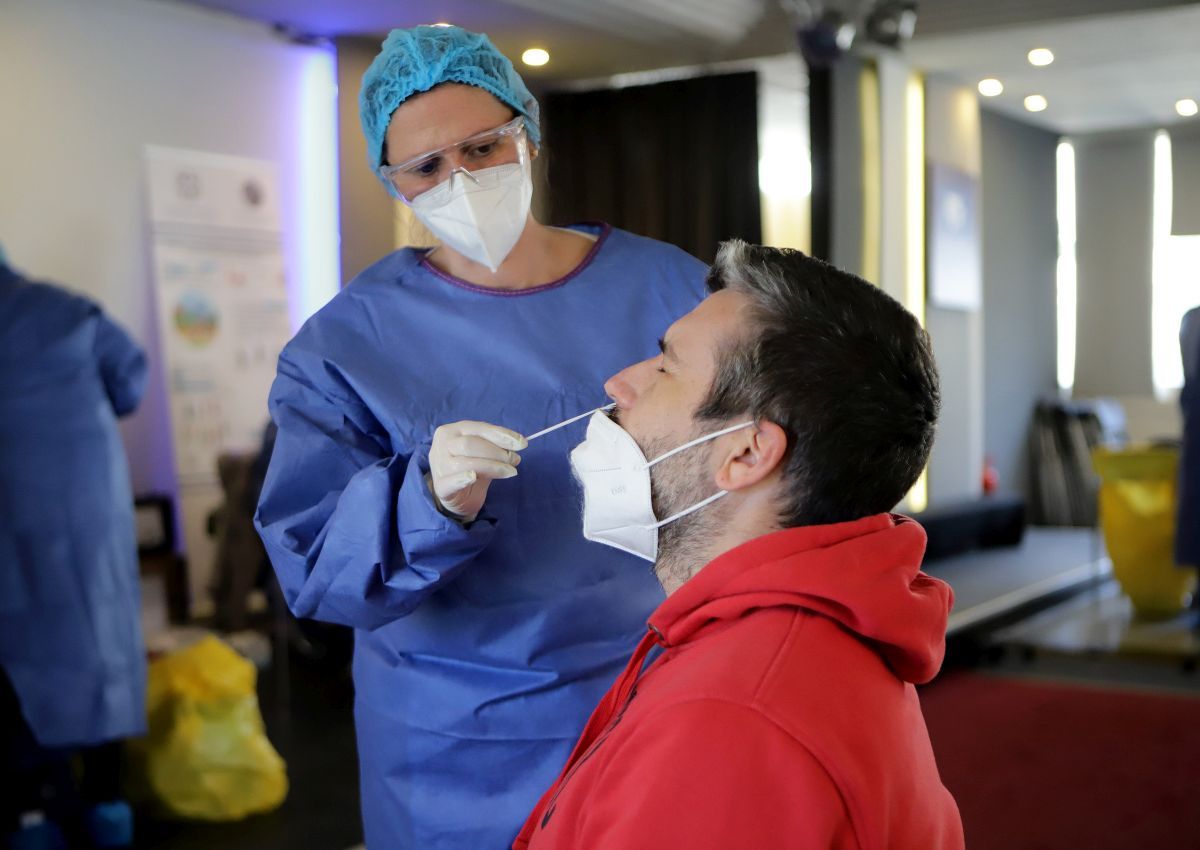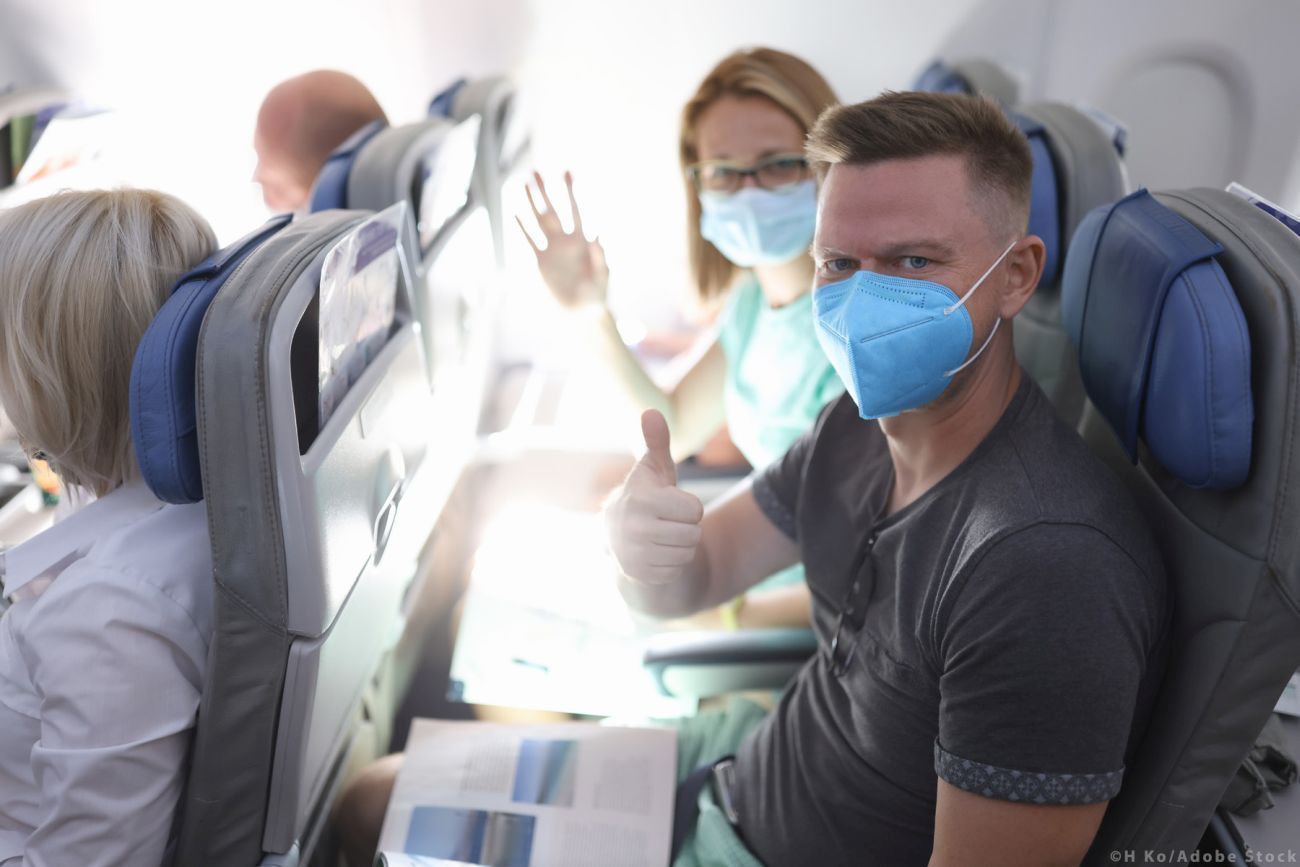Greece Extends Covid-19 Travel Restrictions for International Air Arrivals
Greece has extended restrictions on all international air arrivals until 6 am on Friday, September 24, according to the Hellenic Civil Aviation Authority (HCAA).
The Covid-19 aviation directives issued each week by the HCAA are part of the Greek government’s efforts to curb the spread of the coronavirus (Covid-19) in the country.
In short, arrivals are allowed from EU and Schengen Zone member states, people traveling for “essential reasons” and passengers from 36 non-EU countries and territories.
To enter Greece, arriving passengers must have filled out a Passenger Locator Form (PLF) before traveling and also must either have proof of vaccination/prior infection or a negative Covid test (PCR 72 hours / RAPID 48 hours) result.
Unvaccinated travelers entering Greece from some countries must undergo a mandatory Covid-19 rapid test upon arrival.
Following are the rules in detail.
Travel rules for international arrivals
Who is allowed entry to Greece
Greece’s is open for travelers from all EU & Schengen Area countries and has a ban on travellers from non-EU countries.
However, people traveling for essential reasons and travelers from the following 36 non-EU countries and territories are allowed to enter Greece – provided they have the required documentation – without the requirement for subsequent self-isolation: Australia, Northern Macedonia, United Arab Emirates, United States of America, United Kingdom, Israel, Canada, Belarus, Bahrain, New Zealand, South Korea, Qatar, China, Kuwait, Ukraine, Russia, Saudi Arabia, Serbia, Singapore, Bosnia and Herzegovina, Montenegro, Albania, Japan, Lebanon, Azerbaijan, Armenia, Jordan, Moldova, Brunei, San Marino, Andorra, the Vatican, Monaco, Turkey, Kosovo and Chinese Taipei.
Entry requirements
Greece will allow entrance to travelers that have filled out the Passenger Locator Form (PLF) any time before the departure of their flight. The PLF is mandatory and must be filled out by all travelers, regardless of their nationality. The PLF can be found here.
Passengers from abroad must also have one of the following:
1. a vaccination certificate, stating that 14 days have passed since full vaccination for Covid-19. Vaccination certificates must be issued by a public authority and in one of the following languages: Greek, English, French, German, Italian, Spanish or Russian. The name on the vaccination certificate must match the name on the passport and also include, the type of vaccine administered, the number of doses and the dates they were administered. (The rule is in force for children over the age of 12 born after July 1, 2009.)
2. a negative PCR test performed within 72 hours before travel or a negative rapid antigen test performed within 48 hours before travel. Negative test results must be issued by an authorized laboratory and in one of the following languages: Greek, English, French, German, Italian, Spanish or Russian. The name on the vaccination certificate must match the name on the passport. (The rule is in force for children over the age of 12 born after July 1, 2009.)
3. recovery certificate. Travelers can present a medical/recovery certificate issued thirty days after they first tested positive for Covid-19 (the certificate is valid for entry to Greece 180 days after its issue date). The certificate must be issued by a public authority or a certified laboratory in one of the following languages: English, French, German, Italian, Spanish or Russian. (The rule is in force for children over the age of 12 born after July 1, 2009.)
4. an EU Digital COVID Certificate in digital or print form which will contain information on whether passengers have been vaccinated against Covid-19 or have a negative PCR test performed within 72 hours before travel or a negative rapid test performed within 48 hours before travel or have recovered from the virus. (The rule is in force for children over the age of 12 born after July 1, 2009.)
Important for travelers from Russia
All travelers from Russia arriving in Greece must have a negative PCR test performed within 72 hours before travel or a negative rapid antigen test performed within 48 hours before travel. The measure is mandatory and applies to all travelers from Russia, whether they are vaccinated for Covid-19 or not.
All travelers from Russia must also undergo a rapid test at the airport upon arrival in Greece (see below). The measure is mandatory.
Rapid testing on arrival for some travelers
Rapid testing mandatory for unvaccinated travelers from 16 countries
Unvaccinated travelers entering Greece from the following 16 countries – regardless of nationality – must undergo a mandatory Covid-19 rapid test at the airport they arrive at: Egypt, Albania, Argentina, Bulgaria, Brazil, Georgia, Cuba, the United Arab Emirates, India, China, Libya, Morocco, North Macedonia, Pakistan, Russia and Turkey. Travelers that test positive for Covid-19 will be obliged to take a PCR test and receive further instructions.
Random rapid testing on arrival
Every traveler who arrives in Greece, regardless of the certificate in their possession, may be requested to undergo a random health screening (depending on the data provided on the PLF forms) based on the ‘EVA’ system. If a passenger is selected for a rapid test and is positive for the coronavirus then he/she must quarantine for a total of:
– 7 days if the passenger has been vaccinated against Covid-19
– 10 days if the passenger is unvaccinated
In both cases, passengers will have to take a PCR test on the last day of their quarantine. If the test is negative the mandatory quarantine ends.
Wearing a mask is mandatory
At the arrival and departure areas inside airports, as well as during all domestic and international flights, staff and passengers are required to wear a face mask at all times.
Passengers are also required to comply with the instructions of the permanent and temporary staff of airports or airlines responsible for supervising, crowd management and passenger assistance, in order to maintain the necessary distances and to ensure safe boarding/disembarkation to avoid overcrowding.
The compulsory travel documents passengers must have with them are checked by airline staff. According to the HCAA, airline staff is obliged to ascertain that travelers have all the necessary documentation before they board flight to Greece. In the case of violation, the airline will have to to repatriate the passenger at its own expense.
The Greek government has detailed information on a dedicated website, which includes frequently asked questions, on how Greece is welcoming visitors this year.
Travelers in need of specific details on the travel rules for passengers of international flights are recommended to contact their embassy, airline or the General Secretariat for Civil Protection.








